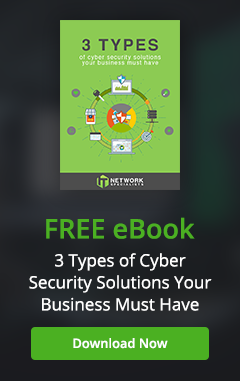To avoid detection by antimalware programs, cybercriminals are increasingly abusing legitimate software tools and legitimate programs in systems to steal data or ruin its integrity. They use fileless malware to infiltrate trusted applications and issue executables that blend in with normal network traffic or IT/system administration tasks while leaving fewer footprints.
A closer look at fileless malware
The dangers of autocomplete passwords
Hackers have found a new way to track you online. Aside from using advertisements and suggestions, they can now use autocomplete passwords to track you down. Feeling unsecure? Here are some ways to keep you out of harm’s way.
Why auto-fill passwords are so dangerous
As of December 2018, there are 4.1 billion internet users in the world.
Benefits of using a VPN
While using a virtual private network or VPN isn’t a silver bullet to online privacy threats, it still offers crucial security benefits, especially if any part of your day involves using unsecured channels such as public Wi-Fi. Given its importance, how do you pick the right one and what factors do you need to consider?
What is a VPN?
The best way to describe a VPN is as a secure tunnel between your device and destinations you visit on the internet.
Do honest working hackers exist?
The word “hacker” conjures up an image of a hoodie-wearing basement dweller that programs all sorts of malicious attacks to infiltrate their target’s computer. But hackers are so much more than that. There are also hackers that use their skills to do good.
5 proactive defenses against cyberattacks
As IT security consultants, we’re stuck between a rock and a hard place. Managed IT services providers (MSPs) such as ours want to provide clients with enterprise-level IT, but that requires that we specialize in overwhelmingly intricate technology.
5 Simple but effective cybersecurity tricks
Can you name five cybersecurity best practices? Most people can’t, and few of those who can, actually follow them. Unfortunately, cyberattacks are far too common to be lax about staying safe online. Your identity could be stolen, or even worse, you could expose private information belonging to your company’s clients.
Regularly evaluate your cybersecurity
Experts estimate that the global market for cybersecurity products this year will exceed that of last year. At first glance, an increase in spending seems necessary and shows that businesses are becoming more aware of cybersecurity issues. But a closer look may prove otherwise.
Tips to reduce risks after a security breach
No company is completely safe from data breaches. For proof, look no further than companies like Yahoo, AOL, and Home Depot, which compromised millions of personal customer information. That said, no business is completely helpless, either. The following steps can minimize the risks to your business in the event of a large-scale data breach.
Malware strain infects 200k more devices
Yet another global malware infection has been making headlines and the story just took a turn for the worse. When the news of VPNFilter broke, experts warned that 500,000 devices were already infected, but now they believe that number is much higher.
Healthcare: Prevent insider threats
Healthcare is the only industry where insider threats pose the greatest threat to sensitive data, with 58 percent of security incidents coming from people working within the organization itself. Here’s a look at five ways to prevent such breaches.
#1 Educate - The workforce (meaning all healthcare employees) must be educated on allowable uses and disclosures of protected health information (PHI) and the risk associated with certain behaviors, patient privacy, and data security.

